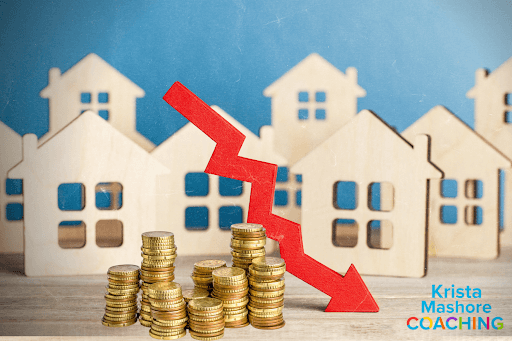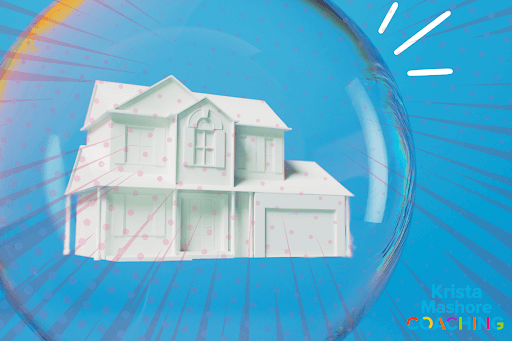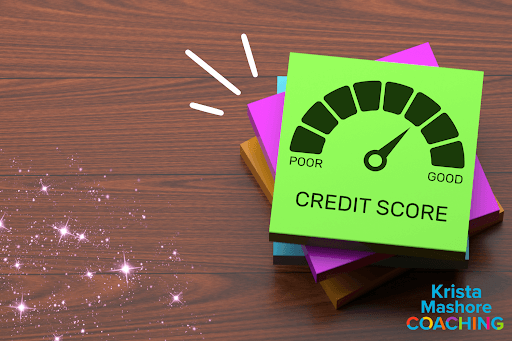The real estate market has been in a constant state of fluctuation for several years now, with prices rising and falling in response to changing trends. This year, however, economists and housing experts have predicted an unprecedented low in home values: a 1.6% decline from 2022 to 2023. Coupled with Zillow's prediction of an increase in home values of only 0.2%, the future of the housing market is uncertain.
The potential for a housing bubble burst looms, presenting a range of risks for homeowners and buyers alike — from destabilizing effects on the economy to a decrease in job opportunities. With low-interest rates, a limited housing inventory, and speculative investing on the rise — and if left unchecked, this could lead to a drastic downturn in the market.
Given the potential consequences of a housing bubble burst, it is important to remain informed and proactive. In this article, we'll explore the current state of the market and its likely impacts on homeowners and buyers in 2023. We'll also discuss strategies for protecting your home's value and ways to take advantage of a downturn in the market. Get ready to learn how to prepare for a potential housing crash and make the most of what could be an unprecedented low in home values.
Current State of Real Estate Market

The current state of the real estate market is one of fluctuation, with prices continuing to drift lower even after peaking last summer. In January 2023, the national median home sale price had dropped 13% compared to that high, yet it is still 42% higher than pre-pandemic days. That being said, the market is still competitive, and many buyers are finding it difficult to find homes that meet their needs and budget.
The market is further complicated by the fact that mortgage rates have been on the rise since April, which has created additional challenges for potential buyers. This, combined with decreased pending and existing home sales, has led to further instability in the real estate market. These factors are making it increasingly difficult for buyers to find the right home and afford it.
On the other hand, sellers are finding that there is still demand for their homes, but they may not be able to get the same price they were expecting a few months ago. Even though the market is still competitive, many sellers are having to adjust their expectations and lower their asking price.
Factors Contributing to the Housing Bubble Burst
The drop in home values projected for 2023 has been attributed to a range of factors. Let's look at the key contributors to the potential housing bubble burst in more detail.
High Mortgage Rates
Mid-April saw the average interest rate on a 30-year fixed-rate loan soar to 6.4%, a considerable jump from the low levels seen over the last few years. This high interest rate has made it harder for potential buyers to afford mortgages and has consequently had an adverse effect on the real estate market. In addition, higher mortgage rates are expected to persist in the coming months, making it increasingly difficult for buyers to find a home they can afford.
The Housing Inventory
Another factor contributing to the potential housing bubble burst is decreased available housing inventory. This has been caused by the pandemic-related slowdown in new construction and renovation activity. In addition, many homeowners have opted to stay in their current homes rather than selling them due to economic uncertainties. As a result, fewer homes are available on the market, which has caused home prices to drop.
The drop in housing inventory also means that buyers have fewer options to choose from and may have to settle for a home that is not ideal. It also gives sellers less leverage when negotiating prices, as they are competing with fewer buyers. Buyers will no longer be willing to pay the same prices they may have when there was more competition and choice in the market.
Increase in Speculative Investing
Many professional and amateur investors have used the pandemic as an opportunity to purchase homes for speculative purposes. These purchases are intended to flip the homes for higher prices once conditions improve. However, this has caused a further decrease in the available housing inventory, resulting in lower home prices.
This decrease has been especially acute in areas already experiencing rising home prices before the pandemic. Instead of providing the market with more homes, these investors are simply taking them off the market to resell when prices are higher. As a result, buyers in these areas are facing even fewer options and lower prices.
Potential Consequences of a Housing Bubble Burst

A housing bubble burst could have far-reaching implications for homeowners, renters, the economy and the job market. Here are some potential consequences of such a scenario:
Effects on Homeowners and Renters
When prices fall, homeowners who purchased their homes in the last few years at inflated prices may experience a substantial loss in value. This could leave them with mortgages higher than their home's current market value, making it difficult for them to sell or refinance. Renters may also be affected if landlords are forced to lower rents due to decreased demand caused by a decrease in home values.
Furthermore, if the bubble bursts and prices crash, it could have a damaging effect on home equity. Homeowners who have used their equity as collateral for loans or investments may find themselves in a precarious financial situation as their home values plummet. The implications of this could be far-reaching, affecting the ability of individuals to access credit and secure loans.
Impact on the Economy
The economic impact could be catastrophic, especially for areas particularly affected by high prices before the burst. Here are some potential implications:
- Decreased consumer spending as people hesitate to make large purchases such as homes or cars.
- Reduced demand for services associated with the housing market, such as construction and real estate agents.
- Increase in foreclosures, resulting in unoccupied homes that can further decrease prices and result in blighted neighborhoods.
- Lower tax revenues for local governments due to decreased property values.
Effects on the Job Market
The job market wouldn't be spared. Sectors connected to the construction and real estate industries would be hit hard, as demand for new homes or services related to buying and selling houses would decrease. This could lead to layoffs in the building sector and a decrease in real estate jobs such as those of agents and brokers.
Other industries that rely heavily on consumer spending could also be affected. With people becoming hesitant to spend, retailers and other service providers may suffer from reduced demand. This could also lead to a decrease in employment opportunities for those industries.
How to Prepare for a Potential Housing Crash
You can't afford to be caught off guard. Preparing for a potential housing crash can help you make informed decisions about when and where to invest. It may also provide a financial safety net for the future if necessary and give you peace of mind while the market fluctuates.
Tips for Homeowners and Buyers to Prepare for a Potential Housing Crash
Homeowners and buyers should take the following steps:
Monitor Market Conditions
The real estate housing market can change quickly, so it's essential to stay on top of market conditions. Monitor local news outlets and websites tracking home prices and trends. Doing so will help you identify potential signs of a housing bubble burst before it occurs.
Research Investments Carefully
Understanding the risks associated with any investment is important when preparing for a potential housing crash. Research the neighborhood, local market conditions, and property values in advance to determine whether an investment will likely be profitable. Additionally, review the terms of any loan you take out and consider your options carefully before deciding.
Similarly, it's wise to read up on current laws and regulations related to real estate, such as the Consumer Financial Protection Bureau's rules for mortgages. Familiarizing yourself with these regulations can provide additional protection in the event of a housing crash.
Build a Good Credit Score

Lenders may be less willing to extend credit when housing prices crash, so having a strong credit score can be beneficial. A few ideas will help you build a good credit score:
- Pay your bills on time: Make sure to pay all of your bills in full and on time every month. This will help you avoid late fees and maintain a good credit score.
- Keep balances low: Keeping the amount of debt relative to your available credit limit low can positively affect your credit score.
- Monitor your credit report: Regularly checking your credit report helps you ensure all its information is accurate.
- Use a mix of credit: To demonstrate that you can manage various types of credit responsibly, consider applying for different accounts, such as a personal loan or a store card.
Strategies for Protecting Your Home's Value
Positioning your home to weather a potential housing crash can be a challenge, but there are steps you can take to protect its value.
First, consider making improvements to your home. Minor updates like repainting or refinishing floors can keep your property attractive and add value. On the other hand, significant renovations such as adding an extra bedroom or bathroom may be too costly and not worth the investment.
How you price your home can also have an impact on its value. If you're selling, it's essential to price your home competitively and ensure it's in line with recent sales prices in the area. Overpricing could leave your property on the market for months, resulting in a lower sale price in the end.
It counts to make your home more attractive to buyers. Staging your home by decluttering, painting walls neutral colors, and repairing any visible damage can help it stand out among other properties on the market.
Finally, consider offering incentives or special financing options if you're selling. Making an allowance for closing costs or providing a longer-term loan with a lower interest rate may incentivize buyers to choose your property.
Taking Advantage of a Downturn in the Market
They say every dark cloud has a silver lining, and the same holds true for downturns in the housing market. While a crash can be catastrophic for some homeowners, others can take advantage of the situation to acquire real estate at discounted prices.
Here are three of the best ways to capitalize on low prices during a housing crash:
Look for Distressed Properties
A housing crash can be an excellent opportunity to acquire a distressed property at a discounted price. When looking for distressed properties, consider the location and its potential for renovation. You may need cash or apply for special financing to purchase a distressed property, as some owners may be desperate to offload their homes quickly.
Invest in Foreclosures
As the foreclosure process begins, lenders may lower the price of a property to cover some of their losses. Investing in foreclosures can be an excellent way to take advantage of bargain prices and create a steady income stream through rental or resale. However, understanding the foreclosure process is essential before taking this route, as properties may need significant repairs that could put your investment at risk.
It is also important to know the real estate market in the area you are considering investing in, as well as the local economy and the job market. This will help determine if the prices of properties are likely to rebound after a downturn, making them a profitable investment.
Purchase With Cash
If you have access to cash during a housing downturn, it can be wise to purchase the property outright. This allows you to avoid interest payments and potentially secure a better deal on the price of the property. Furthermore, if you are considering investing in rental properties, having cash to cover repairs and other maintenance costs helps you remain competitive.
Purchasing with cash can also make buying a property much simpler and faster. By avoiding complex paperwork, lengthy negotiations, and long closing periods associated with traditional mortgages, you can move quickly to take advantage of discounted prices.
Thriving During a Potential Housing Bubble Burst in 2023 and Beyond
The potential for a housing bubble burst is a cause for concern for homeowners, buyers, renters, and the economy alike. This possible crash could be devastating, from decreases in home values to destabilizing effects on the job market.
However, there are strategies that can be employed to help protect your home's value, as well as ways to take advantage of the market if a downturn occurs. These include monitoring market conditions, researching investments carefully, building a good credit score, looking for distressed properties, investing in foreclosures, and purchasing with cash.
Ultimately, it is important to remain informed and proactive to protect your home's value and make the most of a potential housing bubble burst. With the right strategies and knowledge, you can ensure that you'll be ready for whatever the future of the real estate market may hold. So start preparing now for a potential housing crash in 2023 — it could be your key to success!




